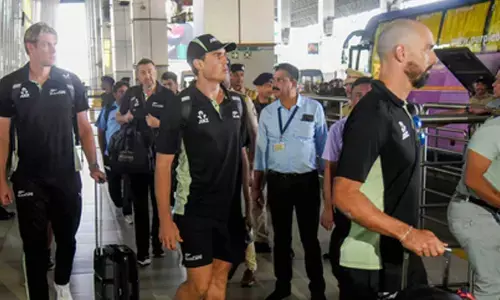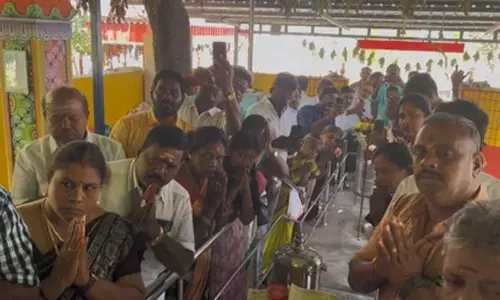C-Section – Elective vs. Emergency: What Every Mother Should Know!

For many women, childbirth is one of the most defining and emotional experiences of their lives. While vaginal delivery remains the natural route, caesarean sections—commonly known as C-sections—have become an integral part of modern obstetric care. Whether elective or emergency, these surgical births can play a critical role in ensuring the safety of both mother and child.
At Apollo Hospitals in Jubilee Hills, Hyderabad, Dr. Anuradha Panda, Senior Consultant Obstetrician and Gynaecologist, has overseen countless deliveries. She emphasizes that understanding the differences between elective and emergency C-sections is crucial for expectant mothers. “A C-section is a surgical procedure where the baby is delivered through incisions made in the abdomen and uterus,” explains Dr. Panda. “We usually classify them as either elective, where the surgery is scheduled in advance, or emergency, when we need to act quickly due to complications during labour.”
Why Elective C-Sections Are Chosen
Elective C-sections are often planned due to specific medical or obstetric reasons. “Some of the most common indications include malpresentation—like a breech or transverse baby—twin pregnancies, and placental conditions such as placenta previa,” Dr. Panda notes. “In some cases, the baby may be growth-restricted, or the mother might have a serious health issue like heart disease or severe preeclampsia, making early delivery safer.”
Another frequent scenario involves mothers who’ve had a previous caesarean. “Women with a history of LSCS—lower segment caesarean section—may be posted for a repeat procedure depending on the condition of the uterine scar,” she adds.
Today, maternal request is also playing a role. “More and more women are asking for planned C-sections, often due to fear of labour pain or the desire to plan the date,” Dr. Panda says. “But I always ensure they understand that this is still major surgery. The pros and cons need to be discussed thoroughly before going under the knife.”
When Emergencies Strike
Unlike planned C-sections, emergency procedures are carried out when complications arise unexpectedly during labour. “The most common triggers include fetal distress, which we detect from the baby’s heart rate, or labour that isn’t progressing,” Dr. Panda says. “Other emergencies include placental abruption, cord prolapse, or uterine rupture in women with a prior scar.”
In such situations, the priority is the safety of both mother and baby. “As obstetricians, we sometimes have to make snap decisions in the labour room,” she says. “There isn’t time for debate. We act to protect lives.”
Challenging the Myths
Dr. Panda is well aware of the many myths surrounding caesarean delivery. “One big misconception is that a C-section is an easier option than vaginal birth,” she remarks. “Yes, it allows for planning and avoids the uncertainties of labour—but it’s still a major operation. Recovery can be slow, and mothers need time to heal, manage pain, and care for the incision.”
The perception that C-sections are safer for babies is also misleading. “They are certainly life-saving in many emergency cases,” she acknowledges. “But for healthy pregnancies with no complications, vaginal delivery remains the gold standard. It carries fewer risks overall and ensures quicker recovery for the mother.”
The Next Pregnancy Consideration
Many women wonder how a C-section affects their future pregnancies. Dr. Panda points out that the uterine scar left by surgery carries implications. “There can be adhesions, or scar tissue, that may cause complications like placenta previa in the next pregnancy,” she explains. “And though rare, uterine rupture is a real risk if the scar isn’t strong enough.”
This is why any future pregnancy should be managed carefully. “VBAC—vaginal birth after caesarean—is an option in selected cases,” Dr. Panda says. “But it’s not suitable for everyone. We assess the risks and counsel the mother accordingly.”
A Growing Trend
India has seen a steep rise in C-section rates, especially in private hospitals. “Between 2016 and 2021, we saw the national average go from 17.2% to 21.5%, and in urban private sectors, nearly one in two deliveries is now by caesarean,” Dr. Panda reveals.
She attributes the trend to a combination of factors. “Older maternal age, IVF pregnancies, increased referrals of high-risk cases, and more cautious medical practice all contribute,” she says. “Plus, many women are more educated and involved in the decision-making process now, which influences the delivery method.”
An Informed Choice
In the end, Dr. Panda believes that no single path to childbirth is universally right. “Every woman, every pregnancy is different,” she emphasizes. “Fear of labour pain should not be the reason to avoid vaginal delivery—especially when epidural analgesia is available.” She encourages open dialogue between patients and doctors. “Women should ask questions, share concerns, and be involved in the planning,” she says. “C-section isn’t something to fear, but it also shouldn’t be chosen lightly.” Childbirth is deeply personal and inherently complex. But with the right information, guided by experienced hands like Dr. Panda’s, women can feel empowered to make choices that honour both their health and that of their baby.














